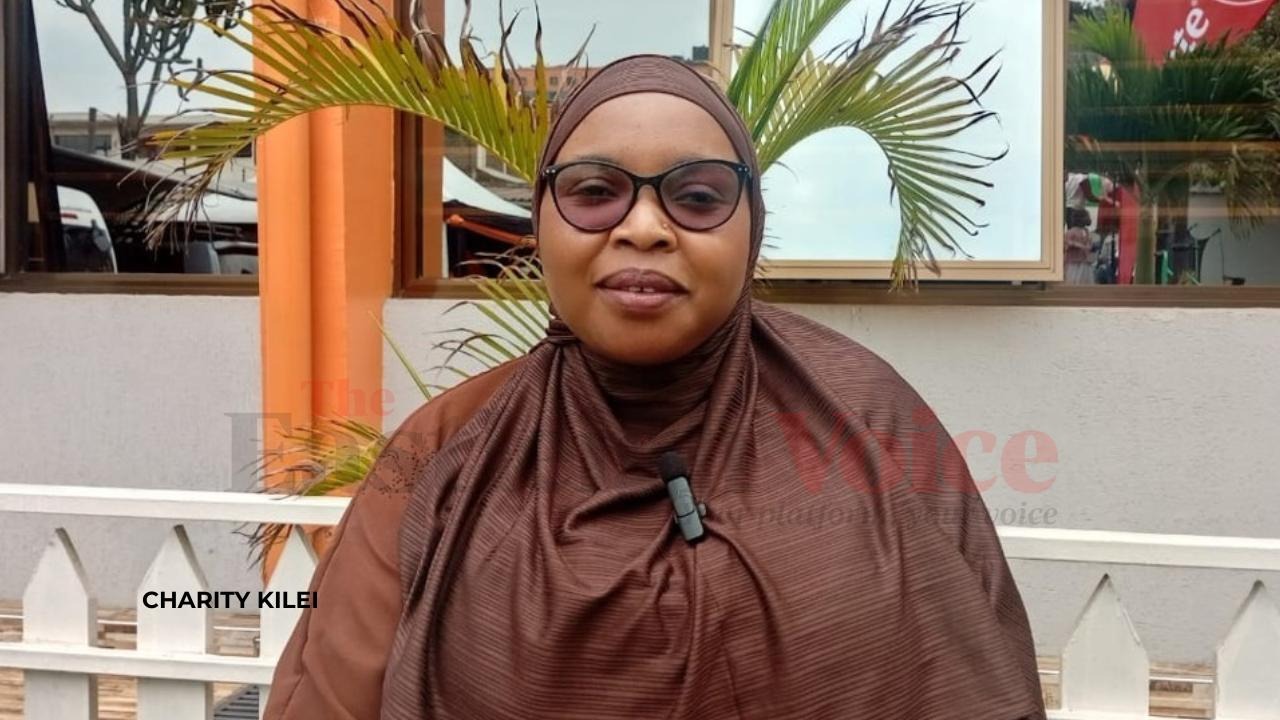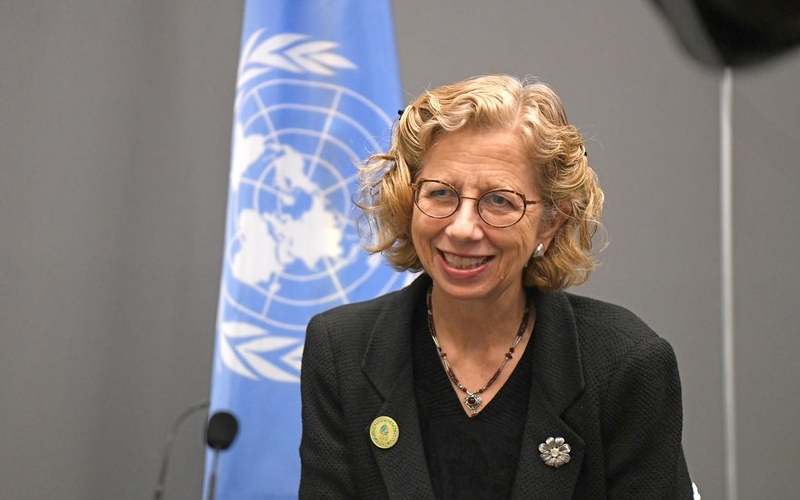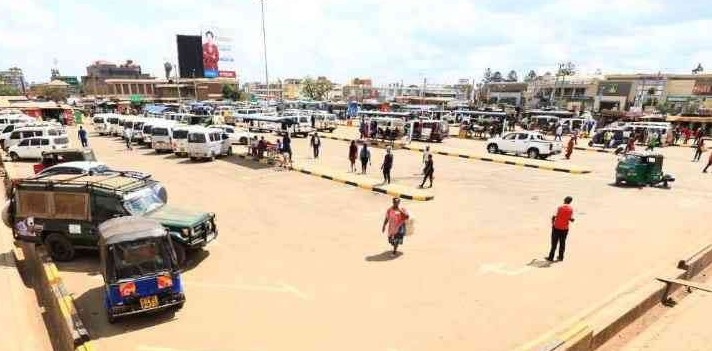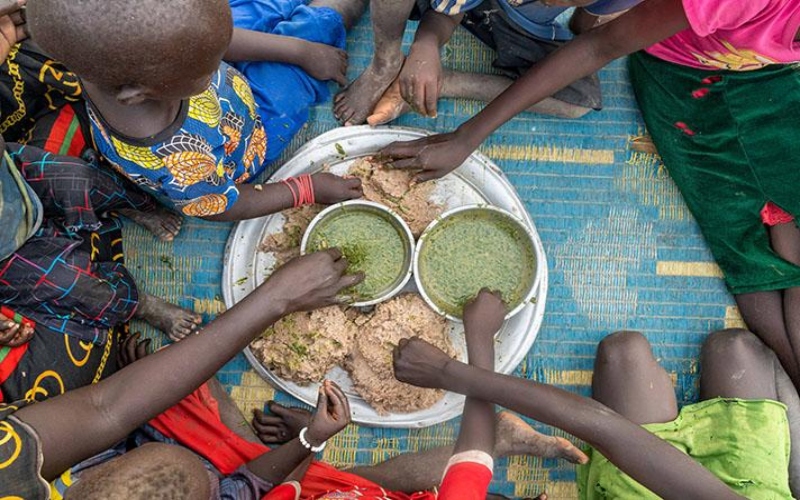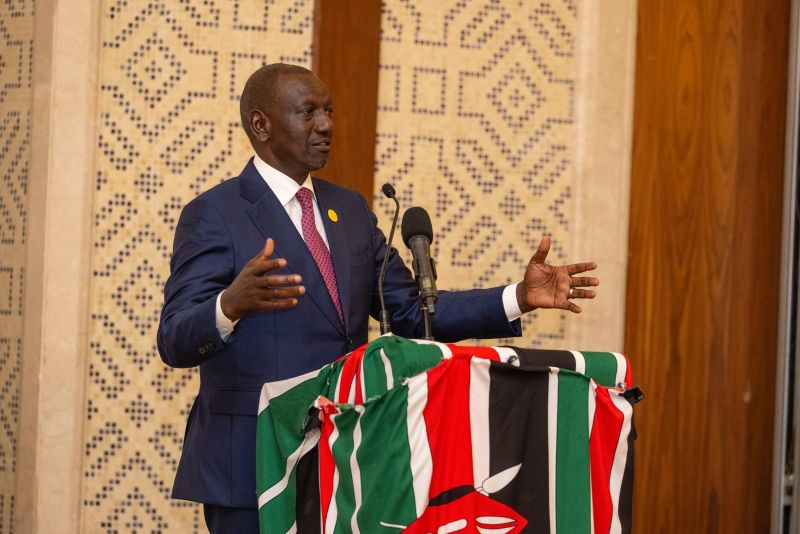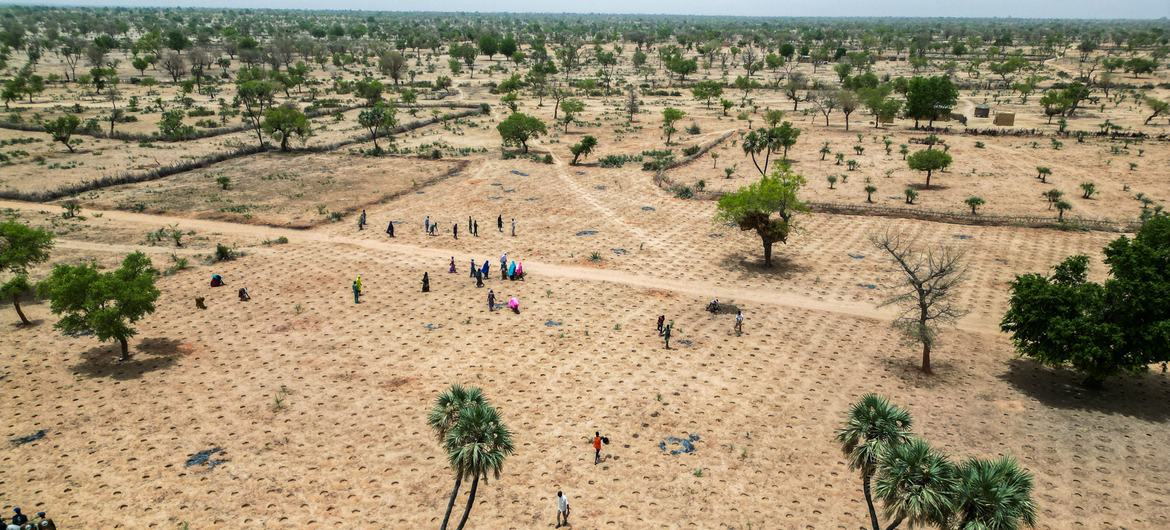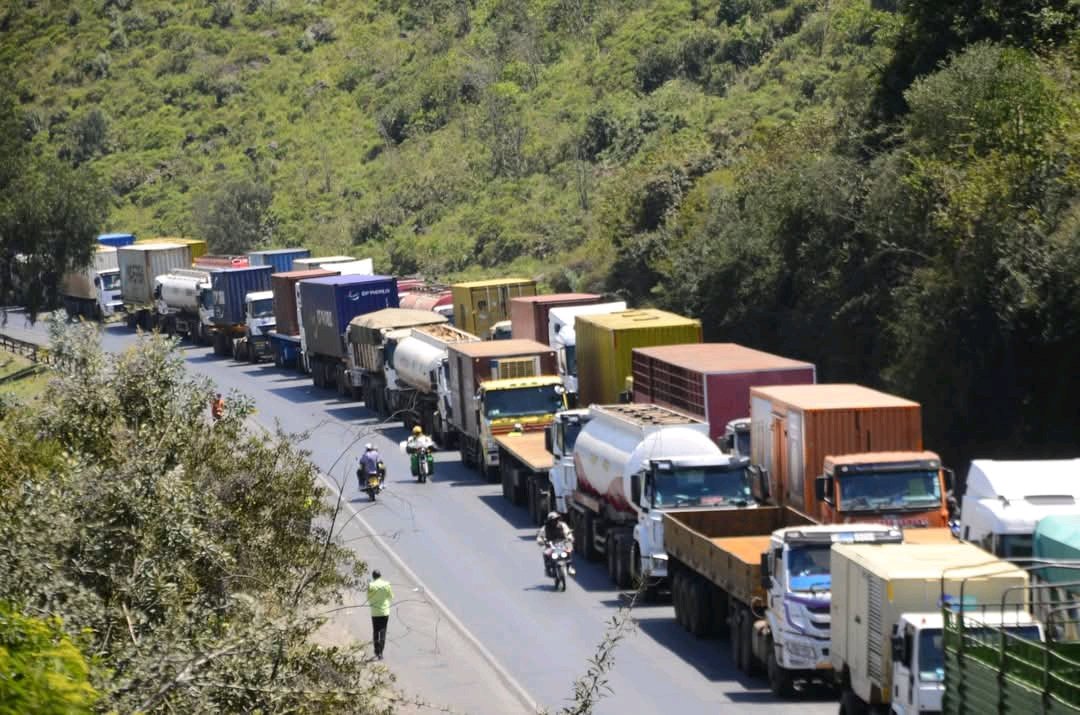Jowhar: Somalia’s agricultural town that craves its glorious past
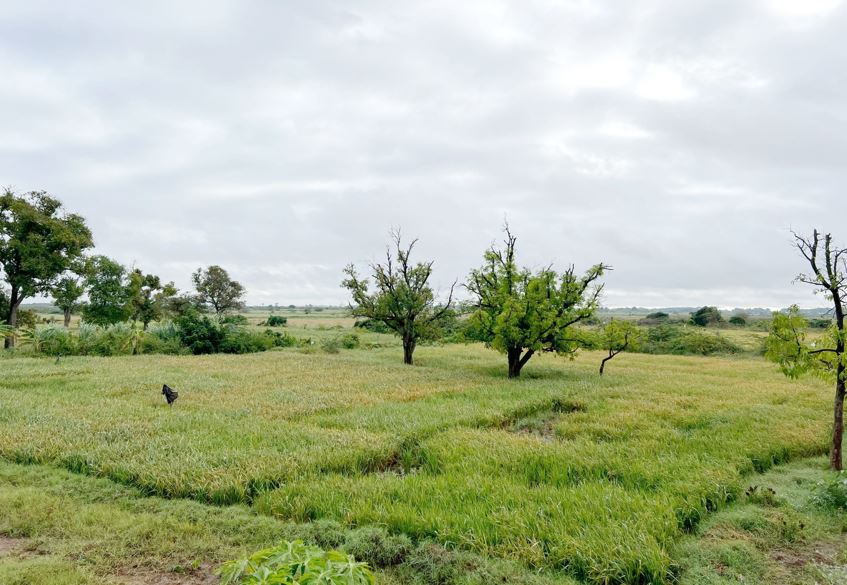
A high cost of production, especially the price of fertiliser, and years of war have left farmers unable to meet demand.
Mohamed Hassan, a 51-year-old father of seven children looks forward to harvesting his rice. Today, he woke up early and headed to his farm just outside Jowhar town, the capital city of Hirshabelle state of Somalia, to supervise the harvesting of his rice paddies.
Mohamed hopes to harvest about 50 bags of rice weighing 50kg each from rice paddy which he hopes will fetch him $800 at the Jowhar market, from which he will deduct the production costs.
More To Read
Mohamed and other farmers in Jowhar prefer growing rice to maize due to its high profitability. However, they face a high cost of production, especially the price of fertiliser.
Mohamed spent $666 this year on fertilisers and $140 on labour. In short, Hassan hopes to make a profit of $800 from four months of hard work.
He is content with his work because it pays him well.
“The Jowhar rice has a good demand and I hope to sell my harvest within a short period,” Hassan told The Eastleigh Voice at his farm in Banaaney, outside Jowhar town.
Mohamed says rice production was more profitable before war broke out in the country in the 1990s.
After years of instability in Somalia, the famous Jowhar paddies produce very little, even though the local rice is more preferred to the imported one. Somalia mainly imports rice from Pakistan and Bangladesh.
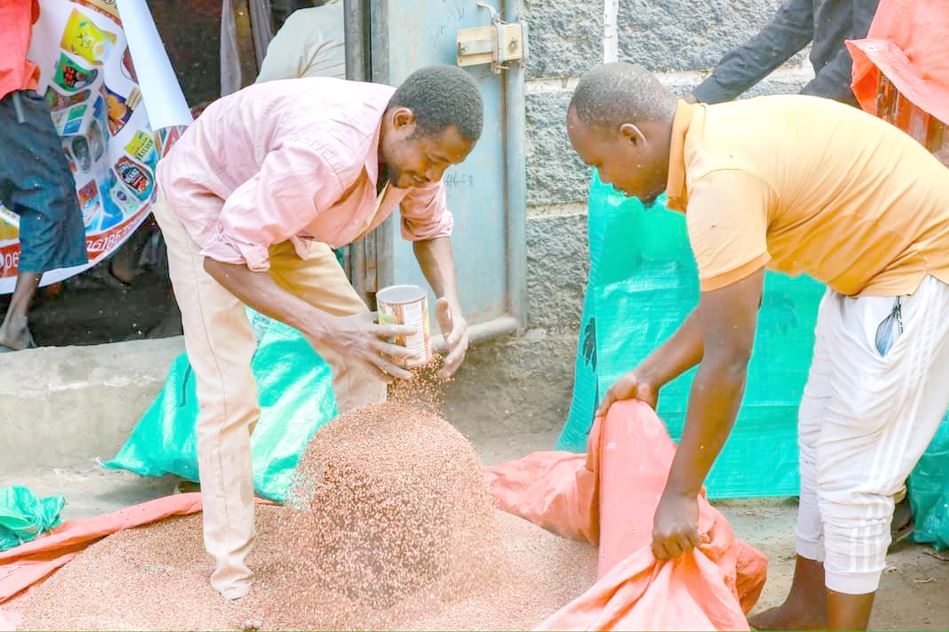 Men measure sorghum from Jowhar at the market. (Photo: Mohamed Nur)
Men measure sorghum from Jowhar at the market. (Photo: Mohamed Nur)
“People love the Jowhar rice but our production is very little due to a lack of enough fertiliser since it's very expensive for farmers. Our poor roads and storage facilities also affect our yields. I get orders for my rice even before harvesting due to its high demand,” Mohamed said.
Shadow of its past
Located 90 km north of the capital Mogadishu, Jowhar is a rich agricultural town. Years back, it used to be Somalia’s rice basket but is now a shadow of its past.
Rice was introduced in Jowhar town in the mid-1970s and quickly became synonymous with the town. It is the main staple food in Somalia, which has pushed the demand for Jowhar rice. However, production collapsed with the fall of the government in the 1990s.
During Somalia’s glorious days, Jowhar was famous for its white rice, locally known as “beriis baarey”, which only grows in here.
The town is also famous for sugar production and was a favourite weekend getaway for families from Mogadishu looking for a good place for picnics.
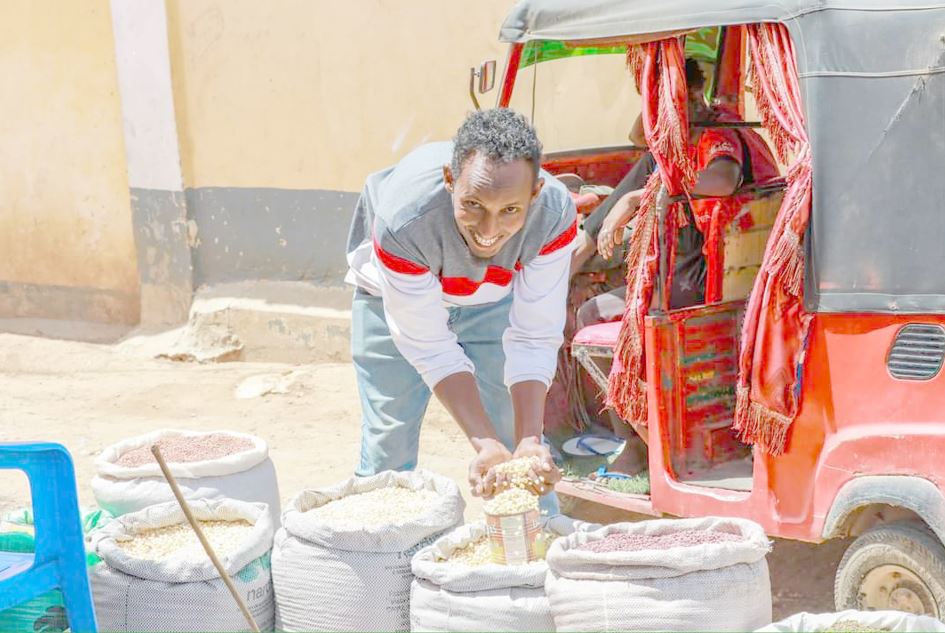 A young Somali man samples cereals from Jowhar farms. (Photo: Mohamed Nur)
A young Somali man samples cereals from Jowhar farms. (Photo: Mohamed Nur)
A hectare of land would produce nearly 100 sacks when rice production was good. Farmers would get government assistance before the fall of former president Mohamed Siad Barre’s regime in 1991.
Prices of locally produced rice have also fallen drastically due to poor production and unpredictable harvests. A kilo of Jowhar white rice now retails at $1 while a kilo of imported pishori rice fetches a dollar and a half. Rice is normally planted during the long rainy season between March and June.
But rains have been erratic lately, and farmers have been forced to adapt to the changing climatic conditions.
Jowhar also used to supply sugar, fruits and other foodstuffs to the rest of the country. More than three decades later, the town is now a shell of its past, struggling to even feed itself.
Locals reminiscence the good old days when Jowhar was the place to be in Somalia. Back then, people even compared it to heaven.
“Jowhar was heaven during its glorious days. We had rice fields and mills as well as sugarcane farms and a sugar factory. We used to attract city dwellers from Mogadishu who would come to enjoy their weekends on our lush, green farms. Now we are a shadow of our past,” another rice farmer, Yusuf Ahmed, told The Eastleigh Voice.
Bumper harvest
Last year, Yusuf had a bumper rice harvest from his four-hectare farm in Mareerey on the outskirts of Jowhar. He harvested 120 bags. Prices were high then and he sold a bag of rice for $35 and made $2,424 from his harvest, not bad for a family in Jowhar where life is cheap, and food is abundant.
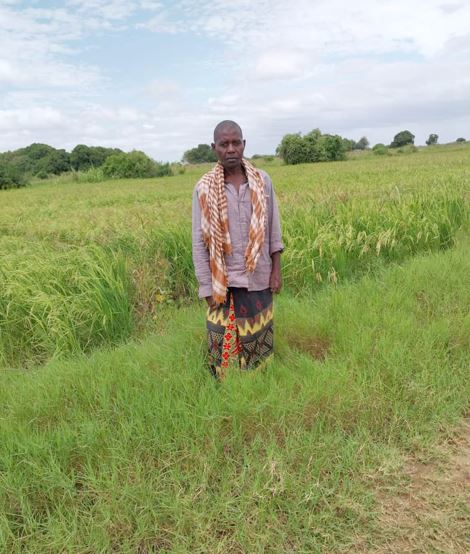 Farmer Yusuf Ahmed poses for a photo at his rice farm. (Photo: Hassan Mohamed)
Farmer Yusuf Ahmed poses for a photo at his rice farm. (Photo: Hassan Mohamed)
“Farming needs patience and experience. I advise those who wish to venture into rice farming to learn how to grow it and all its needs before they go into farming. You can easily lose all your money if you are not careful. I was lucky last year I got a good yield. Sometimes I also get a loss,” Yusuf said.
The decline in agricultural production in Jowhar has also been attributed to a poor road network which causes delays in transporting produce to the market.
Natural disasters like floods are also a perennial problem, and even though rice does well in paddies of water, flush floods wash away rice fields, leaving farmers with nothing.
In August 2021, River Shabelle burst its banks due to heavy rains. The floods marooned farms and houses, forcing many farmers to relocate. That season no farmer harvested any crop.
Salma Sabir Abdullahi, a 24-year-old mother of four, is one of the farmers who lost everything. This year she has planted vegetables and maize on her two-hectare farm.
“I used to grow rice but this year I did not plant it because of lack of funds. I lost my entire rice field two seasons ago due to floods, so this year I didn’t have enough money to plant rice. I have planted maize and vegetables,” Salma told The Eastleigh Voice.
Authorities have been training farmers in Jowhar and giving them technical support and seeds to help encourage rice farming.
“We train the farmers on rice best practices to help them improve yield. We also help them market their products through their unions,” field officer Hassan Ali told The Eastleigh Voice.
Unemployment is high in Somalia, and residents of Jowhar believe if the agriculture sector gets enough funding, unemployment in the country can be reduced.
Top Stories Today
